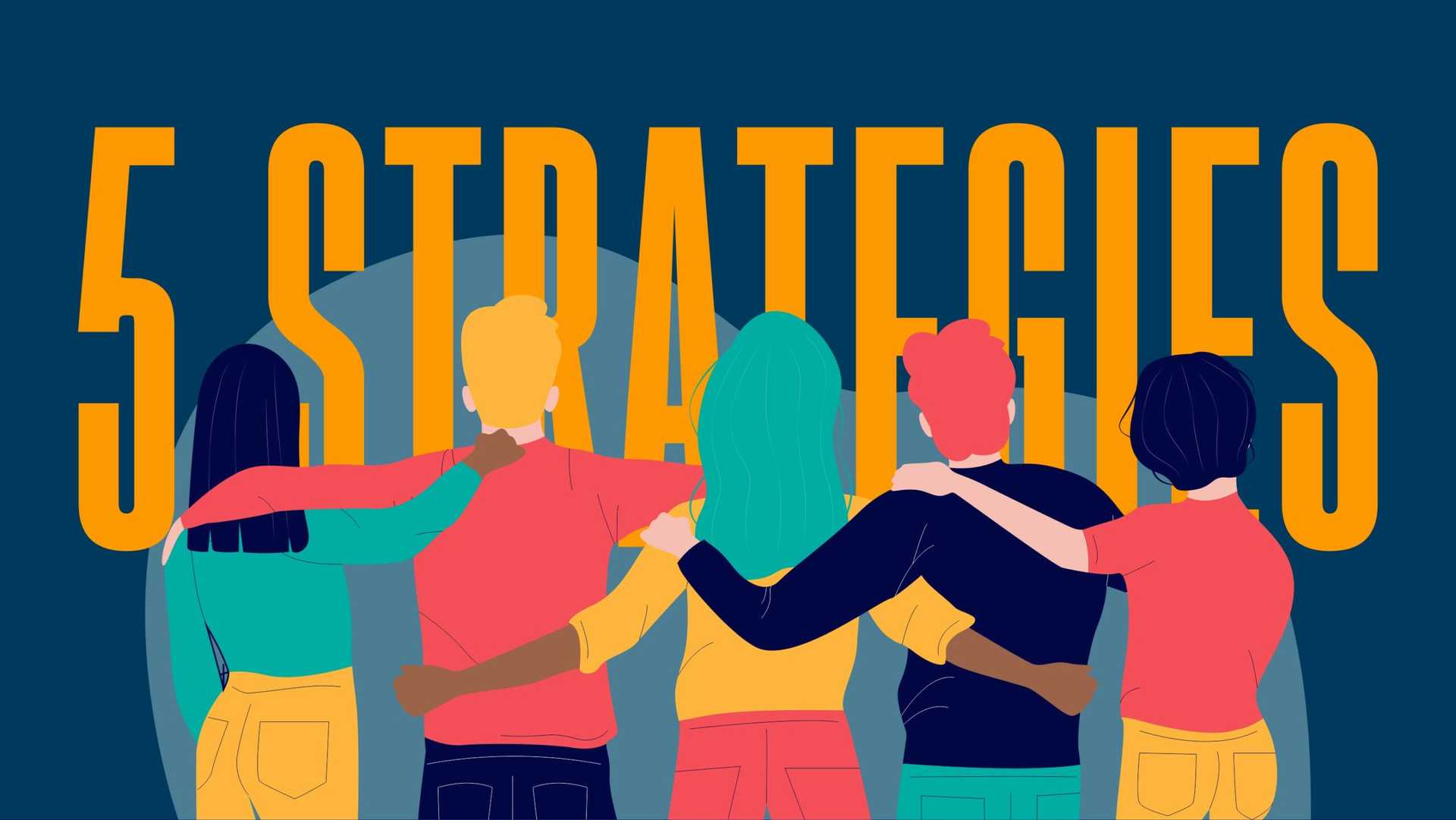
February 02, 2024
Technical expertise is just one aspect of what makes a successful developer.
To accelerate your growth and access new career or freelance opportunities, you must build a strong professional network.
In this article, we’ll explore five valuable networking strategies to enhance your professional journey.
Finding your community
Naturally, the first step in strategic networking is identifying the right circles! Research industry influencers, thought leaders, and successful professionals who have reached the pinnacle of their careers. These can be people who:
- Develop in the same niche as you, such as front-end development.
- Work in the same industry. For example, finance, health, or legal.
- Specialise in the same programming language as you.
- Have faced (and overcome) similar challenges to you.
Read and listen to their content, as it can provide valuable advice and guidance. Thanks to social media, many of these experts are accessible. Don’t be afraid to send them your questions or comments. Here’s a list of 10 influencers to get you started–but there are so many more a Google search away.
And don’t discount connecting with people on the same journey as you. If you’re just starting out, connect with others in the same position or have the same background as you.
For example, only 18% of programmers and software developers in the UK are women, making it hard for female coders to find each other. However, with targeted and effective networking, you can.
Build your personal brand
What are the first thoughts that pop into your head when we say:
- Steven Bartlett
- Karen Brady
Whatever popped into your head is the sum of their personal brand.
Similarly, you have a personal brand. Just ask your friends and family members to describe your personality. Their answer is the sum of your personal brand.
Whether they like it or not, everybody has a personal brand. The trick isn’t to create a personal brand but to take control of its narrative.
In the context of your developer life, you need to build a personal brand of someone with the right technical and soft skills that make people want to work with or employ you.
Establishing a strong online presence
In 2024, LinkedIn will be the best place to build your personal brand and community.
A quick search suggests there are over 10 million software developers on LinkedIn. This doesn’t include people who might have given their profile a more niche title.
This might sound overwhelming, but listen to this: only 1% of LinkedIn’s users create content on the platform.
And that percentage is likely to be even lower among the developer clan–meaning there’s a sizeable opportunity for you to make an impact.
Now, you’re wondering, “But what do I even post about?” Here are some ideas and why they work:
- Your developer journey: Post content around the highs and lows of your professional journey. Talking about your challenges and how you overcame them can provide immense value to those who are new to the industry and can attract and inspire people in general.
- The problems you solve for people: For freelancers and job seekers, one of the best ways to find more work is to highlight the types of projects you’ve been involved in and the benefits your existing clients have realised. With this, you present yourself as a problem-solver for others facing similar issues.
- Tips and tricks: On the way to becoming known as an industry expert, attracting more work and better job opportunities, is to share your unique knowledge that makes you a competent developer.
Posting regular content is only half the work. The other half of the online networking process is community building. You can’t expect to post content and hope people see it, right? You need to:
- Send connection requests to relevant people, such as fellow developers and those who fit your ideal audience or employer profile.
- Have conversations in the direct messages (DMs). Don’t put too much pressure on yourself to make a sale or get a job. Just get to know them without any expectations, as those casual conversations often lead to business opportunities.
- Engage with people in public. This means commenting on and starting conversations under other people’s content.
You can apply this online networking approach to any social media platform, whether X (formerly Twitter) or GitHub.
As an alternative, consider joining online communities made specifically for software developers. Developer Nation offers learning, career growth, and connecting opportunities for software creators of all areas of development and all levels of experience.
Attending in-person networking events
Attending events, such as conferences, workshops, and meetups with like-minded professionals, offers immense value for developers seeking to enhance their networking processes.
These gatherings are great for:
- Building professional relationships with people
- Gaining exposure to diverse perspectives
- Acquiring new knowledge
- Exchanging ideas
Most importantly, it increases your visibility. You can only get new work or access career progression if people know you exist!
Don’t know how to find events near you? Search on Eventbrite or through the online community you should be building simultaneously.
The big advantage of meeting in person over online is the ability to quickly build rapport and connect because people are exposed to things like the tone of your speech and body language, and we know the text is very tone-deaf.
Meeting new people can be daunting, especially for introverts. To make meaningful connections, your networking skills need to be sharp. You must be able to hold conversations and manage any anxiety and nerves.
This is where podcasts such as The Art of Communication are helpful. In fact, this podcast has a specific episode dedicated to networking that’s well worth a listen. Among other things, it teaches you how to approach people, break the ice, and find a shared interest to build rapport.
Identifying networking goals
Without setting specific networking goals, all the networking tips in the world won’t make a difference because you’ll be shooting in the dark. Ask yourself these three questions:
- What can I offer people? The attitude to networking has to be “What can I give?” not “What can I gain?” if you want to build meaningful relationships.
- What do I want to achieve? Is it more work (read: more revenue), a new job, or simply hanging out with fellow developers?
- What specific area in the development world am I interested in the most?
Answering these questions determines who you connect with and the types of events you attend.
Then, you go deeper and identify specific weekly or monthly goals based on your resources and availability:
- How many conversations will I try to take part in per event?
- How many relevant people will I add on social media?
- How many posts of others will I engage with?
- How many times will I post on social media?
- How many networking events will I attend?
TL;DR
Creating genuine connections and beneficial relationships is crucial for any developer who wants professional growth. This is done through networking. We explored:
- Finding your community
- Building a personal brand
- Building online networks
- Building offline networks
- Having networking goals
Good luck!
NEW Developer Nation survey is live. Participate and shape the trends in software development. Start Here!
Author bio
Arif Bharakda is a versatile writer passionate about marketing, technology, and B2B insights. With a keen interest in personal growth, Arif brings a relatable perspective to complex topics, making them accessible to all readers.
Contact us
Swan Buildings (1st floor)20 Swan StreetManchester, M4 5JW+441612400603community@developernation.net






